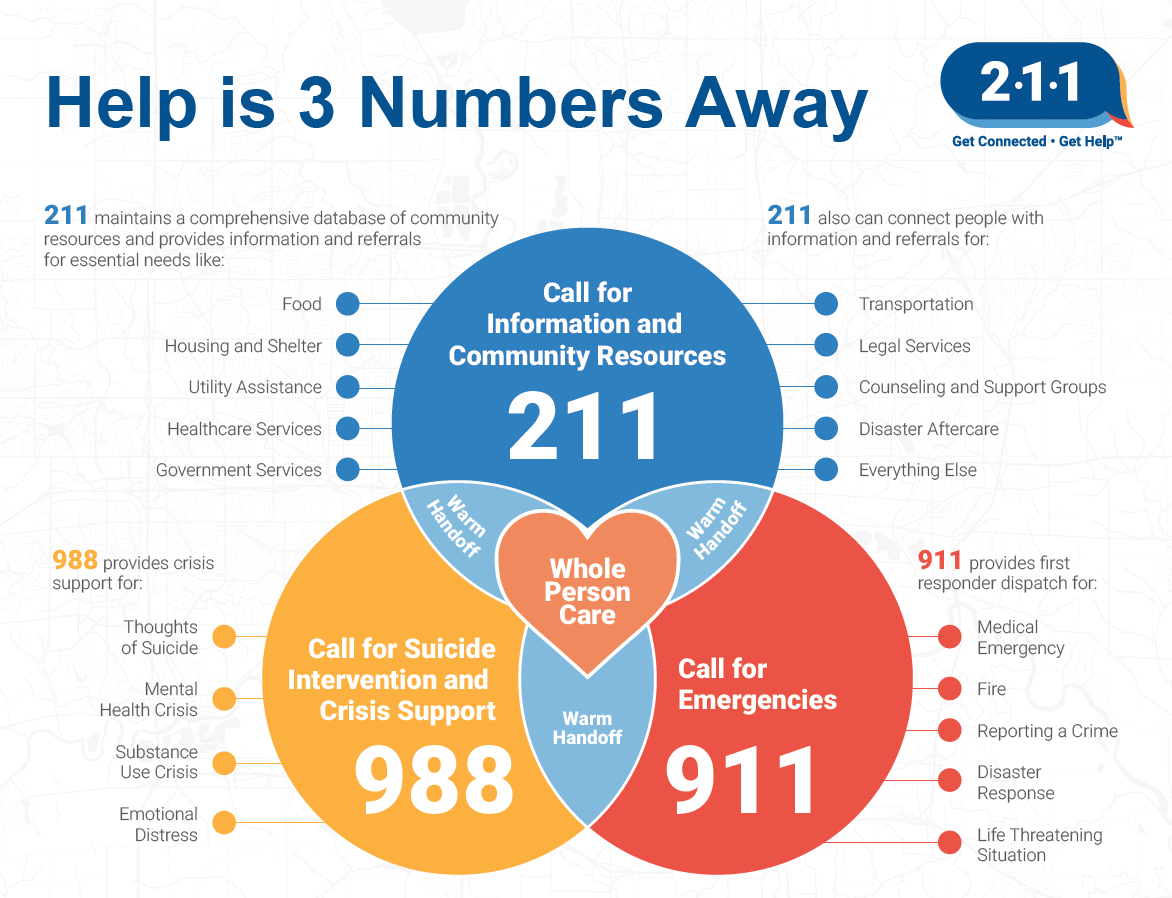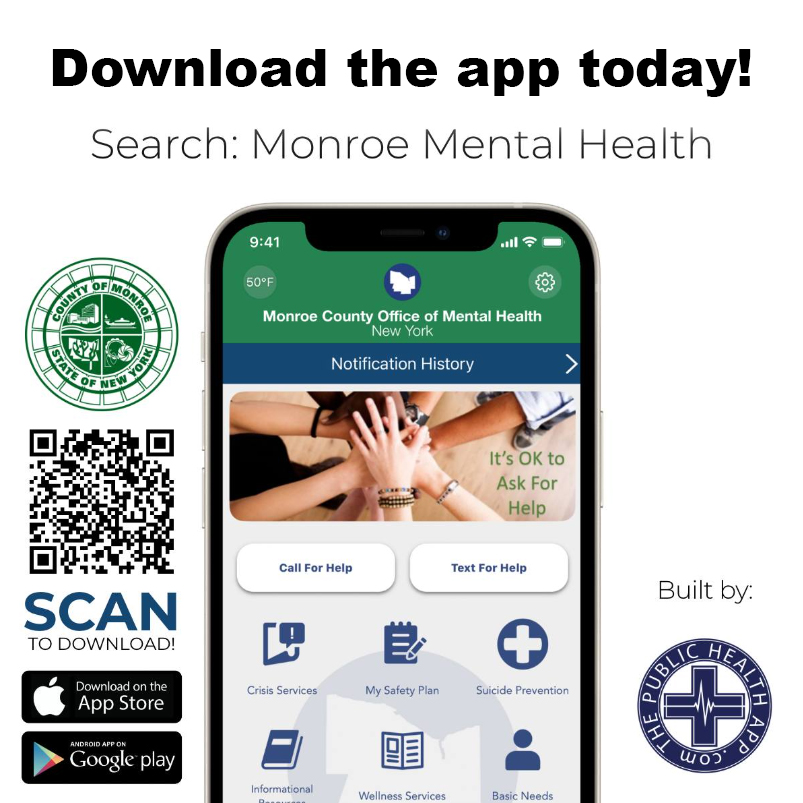Emergency and Crisis Services
Emergency Services focus on public safety, security, and health, encompassing police, fire departments, and emergency medical services (EMS).
Crisis Services are available around the clock to offer immediate support, screening, and referrals. These services may include phone support, mobile crisis teams, community-based crisis programs, drug and alcohol recovery support, behavioral health urgent care centers and access and crisis centers, and emergency rooms.


Inpatient Services
An inpatient setting may be necessary for individuals with severe symptoms. This provides a 24-hour program that includes medical, psychiatric, social, and nursing care for mental health disabilities. Upon discharge, a personalized plan will be created, including referrals for ongoing services such as medical care, mental health treatment, vocational support, housing, and psychosocial services.
Partial Hospitalization
In a partial hospitalization setting, most of the services offered in inpatient care are available on an outpatient basis. This approach focuses on acute, short-term crisis intervention with significant emphasis on individual and group therapy. Clients typically attend for half or full days, with the aim of preventing hospitalization or reducing the duration of inpatient stays.
Personal Recovery-Oriented Services (PROS)
Personal Recovery-Oriented Services (PROS) is an intensive mental health treatment program that combines treatment, support, and rehabilitation in one location, under a single NYS OMH license. It offers a customized range of recovery-focused services for individuals aged 18 or older with a mental illness diagnosis and functional disability. PROS provides various levels of intensity tailored to individual needs, helping clients develop skills to manage their symptoms and achieve goals like employment, independent living, education, and meaningful relationships.
Care Management
Care Managers assist adults or children needing extra support to navigate services. Eligibility requires Medicaid, two or more chronic conditions, and care management needs. They support recovery by connecting individuals to appropriate services, coordinating care, promoting health, managing transitions (such as from inpatient to other settings), and providing individual and family support. Care Managers also work to minimize emergency and inpatient service use.
Family Support Services
These services offer support and advocacy for families with children facing emotional or behavioral challenges. Programs include support group meetings, respite care, transportation, short-term phone support, information and referral services, school advocacy, and Family Development classes.
Community Residence Programs
Community residence programs provide group home settings with room, board, and supervision. The aim is to help individuals develop skills for independent living and achieve emotional stability. These rehabilitative and transitional programs are typically funded through SSI, SSD, Monroe County Public Assistance, and Medicaid.
Supportive Living
Supportive living services offer a minimal level of professional support, including weekly site visits and contact with a clinical staff member. This option provides community-based supervised living in shared or single apartment units.
Supported Housing
The supportive housing program helps individuals find and secure mainstream housing and access the support necessary for successful community living. Services include help with housing choices, roommates, furniture, financing, and connection to a comprehensive support system that includes case management, mental health services, rehabilitation, respite care, social support, employment, and health services.
Counseling Services
Counseling services can be provided by private practitioners or outpatient clinics. These services cater to adults and children/youth, aiming to reduce symptoms and the impact of mental illness, enhance wellness, and promote recovery. Services include assessment, crisis intervention, medication management, psychotherapy, and coordination of health-related services, with family and supportive individuals encouraged to participate. Clinical providers use evidence-based approaches and offer integrated treatment for mental health and substance use issues.
Recovery Support
Recovery support includes non-clinical, community-based programs that help individuals maintain their recovery. Often provided by Peer Specialists—individuals with lived recovery experience—these services are supported by specialized training and certification. Peer Specialists offer recovery support in various settings.
Educational, Training, and Vocational Support Services
Educational Support provides individuals with access to resources and programs to enhance their learning and academic performance. This can include tutoring, special education services, and assistance with accessing educational accommodations. Programs may also help individuals with mental health challenges navigate and succeed in educational settings.
Training Services focus on skill development for personal and professional growth. This includes vocational training programs designed to improve job-related skills, certifications, and qualifications. Training services may cover areas such as job readiness, work-life skills, and specific technical or trade skills.
Vocational Support includes services that assist individuals in finding and maintaining employment. This can involve career counseling, job placement services, resume building, interview preparation, and on-the-job support. Vocational support aims to help individuals with mental health or other challenges secure and sustain meaningful employment. Programs may offer ongoing support to address workplace issues and promote career advancement.
